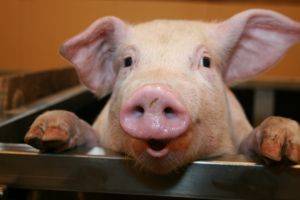Animal health concerns in many countries have strengthened Brazil's position in the global meat market
- African swine fever. Speculative news published in the market, such as the recent report by international agencies on ASF in CHINA, should be carefully considered before making any decision related to the progress of production. it is worth noting that the possibility of sporadic and isolated cases of ASF in China does exist, but nothing as devastating as recently reported. Chinese pig farming is now professional, which ultimately helps control any animal HEALTH issues.
The World Organization for Animal Health (WOAH) and the Chinese government have not confirmed any cases in the country. Even futures for live pigs in Dalian do not indicate a stressful scenario ahead. What is happening is that the supply of pork is high, and less efficient pig farmers must continue to accelerate the sale of animals for slaughter due to losses associated with production costs. China should continue to buy good volumes from Brazil in the next few months, but this should not lead to a strong increase in exports in the final 2023 figures;
- Bird flu. Cases of bird flu outbreaks have had repercussions in Argentina and Chile, but serious problems appear to be far from Brazil as migratory birds begin to return to North America. In addition, Brazil is taking protective measures against the disease, suspending fairs in places where birds gather, and restricting outdoor poultry rearing. It is worth noting that on the main Brazilian farms, basic sanitary and hygienic standards are strictly observed, and in this case the risk of infection is minimal. The same cannot be said about the situation in North America and Europe, the main centers of outbreaks of this virus with the greatest losses;
– An atypical case of spongiform encephalopathy. After 30 days of numerous problems, China has resumed buying Brazilian beef, the market has returned to normal and is about to return to normal. An attempt to revise the health protocol was rejected by the Chinese authorities. The new accreditation could happen in the coming days, suggesting a larger EXPORT flow. Much attention is being paid to the decline in average beef prices in the international market since last year, which has affected South America.
Even in the face of animal health concerns, experts are confident that Brazil will continue to lead the world in beef supplies, and the world leadership in chicken MEAT will further strengthen. The fact is that there are not enough alternative meat suppliers capable of replacing Brazil on a global scale. Another aspect that is facilitating commodity exports should be mentioned: the exchange rate remains favorable in Brazil and other countries in South America.

